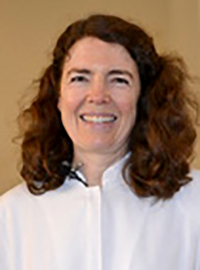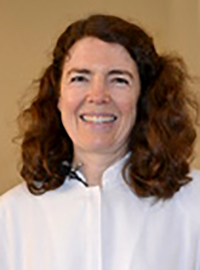Commentary: Following the Risen Christ in the 21st Century

During Lent, I invited my church (Prospect UCC in Seattle) to read Naomi Klein’s book, This Changes Everything: Capitalism vs. the Climate and to see the film The Wisdom to Survive: Climate Change, Capitalism, and Community. As we celebrate Christ surviving the cross, we must also explore what it means to follow that risen Christ in the face of climate change in the 21st century.
What survives the cross is God incarnate in the world, including in us. What survives is the call to love God, each other, and all of Creation; to live in harmony; to do justice; to follow Jesus; and to serve God instead of fear, greed, money, comfort, security, or hate. What survives is Christ calling each of us to give ourselves to something greater than our own lives. We are bolder and stronger when we answer this call in community, supporting each other.
We are followers of Christ. We are people who love God. We are open to the Spirit to change lives—including our own. Climate change gives us the best opportunity in a long time to articulate a vision of the world in which we want to live. Because climate change is a consequence of a society that does not live with God at its center, a culture that tells us that more is better, growth is always good (even on a finite planet), dominion means exploitation and destruction for our own purposes, and accumulation of stuff and money makes you a better person.
In recent weeks we saw one U.S. senator bring a snowball into the Senate as “proof” that climate change is not real. Another senator who denies climate change compared himself to Galileo, because both are in the minority. (However, this senator is in the minority because he chooses to ignore the scientists of our day.) These elected officials are not helping to take our planet in God-centered, sustainable directions.
I invite us to envision what a God-centered, 21st-century world might look like. Perhaps the world has turned to sustainable energy so that fossil fuel companies no longer have social license to pollute. Perhaps people grow more of their own food and get to know their community in the process—through shared meals, working in community gardens, hosting canning parties, or subscribing to community-supported agriculture. Perhaps we dare to love and accept each other across boundaries—of race, geography, culture, language, faith, gender, sexual orientation, etc. So when we hear of typhoons in the South Pacific, flooding in Bangladesh, drought in Africa, or other climate-change-exacerbated issues impacting God’s creation, we stand ready to reach out. Perhaps we become so grounded in God, Spirit, and the risen Christ that we don’t need “retail therapy” to make us feel better about ourselves. Even as we bump up against Earth’s limitations, we live from a place of God’s abundant love. And it becomes more than enough.
What is your vision for a God-centered, 21st-century world? How do we in the United Church of Christ live into it? While the answers may vary, let us also seek and follow the risen Christ, the Stillspeaking God, in these times full of both challenges and great potential.
Meighan Pritchard is UCC Minister for Environmental Justice
View this and other columns on the UCC’s Witness for Justice page.
Donate to support Justice and Witness Ministries.
Click here to download the bulletin insert.
Related News
A Prophetic Call for Justice and Peace in Palestine
The executive leaders of the United Church of Christ have issued the following statement...
Read More‘Love is Greater Than Fear’: Regional Youth Events get to the heart of gospel message
United Church of Christ teens attending this summer’s Regional Youth Events (RYE) are...
Read MoreUCC desk calendars available to order now
Prepare for your day, month and year with the United Church of Christ desk calendar —...
Read More


